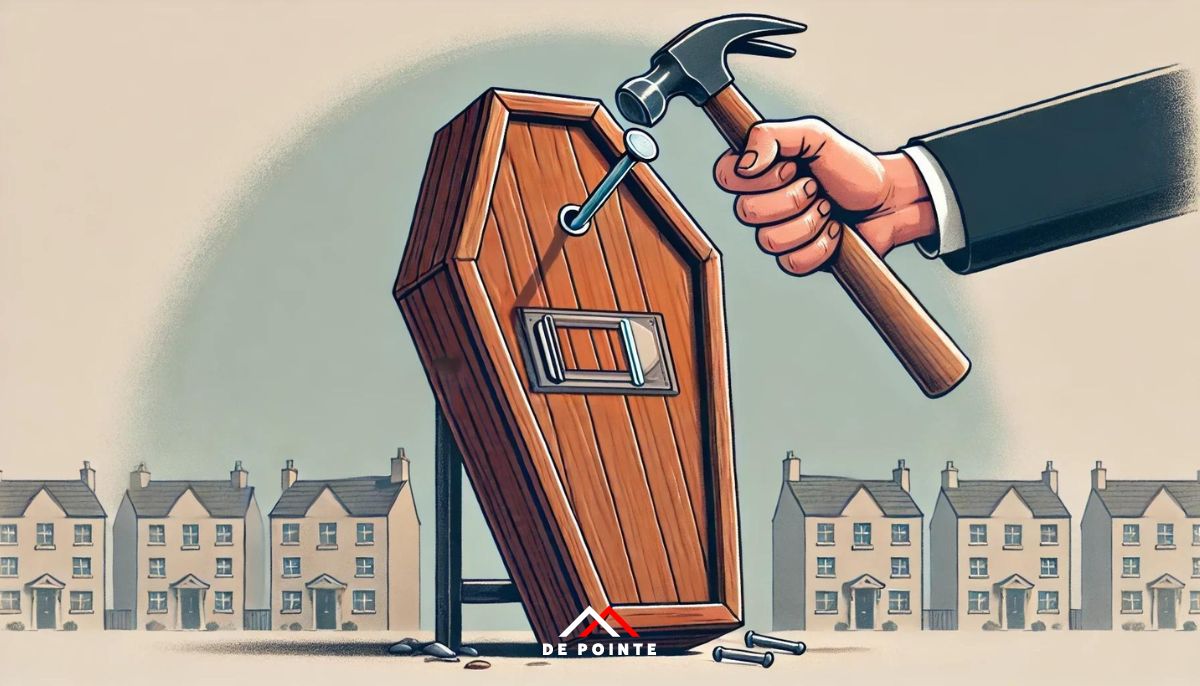Article

The UK government has unveiled the new Renters’ Rights Bill, a landmark piece of legislation representing the most significant changes to the private rental sector in over 30 years. Announced today, these reforms aim to balance tenant protections with landlord responsibilities, focusing on security, fairness, and improved living standards in rented properties. The bill’s measures are expected to have profound implications for landlords, tenants, and the overall buy-to-let (B2L) market.
Overview of the Key Reforms
1. Abolishment of Section 21 “No-Fault” Evictions:
The repeal of Section 21 represents the bill’s centrepiece. This provision allows landlords to end a tenancy without providing a reason, a practice commonly called “no-fault” eviction. By abolishing Section 21, the government intends to protect tenants from sudden displacement and offer more stability and security in their housing situations. New, clearly defined grounds for possession will be introduced, including circumstances such as significant rent arrears, anti-social behaviour, or property damage.
2. Implementation of Awaab’s Law:
Awaab’s Law will be extended from social housing to the private rental sector, requiring landlords to address serious hazards such as damp, mould, and structural issues within a fixed timeframe. Named after a toddler who died due to prolonged exposure to mould, this measure underscores the government’s commitment to tackling health hazards and improving living standards across all types of rental housing.
By compelling landlords to maintain their properties to a higher standard, this Law is expected to significantly reduce the number of unsafe rental properties, currently estimated at over 500,000 homes in the private sector. However, landlords may need to invest in repairs and upgrades to comply with these new obligations, increasing their operating costs.
3. Ban on Rental Bidding Wars:
The new legislation will make it illegal for landlords and letting agents to engage in rental bidding wars, where prospective tenants are pitted against each other to offer the highest rent. Instead, a fixed rent must be advertised, and landlords cannot accept offers above this rate.
This measure aims to curb the inflation of rental prices driven by such practices, making finding affordable rental housing increasingly challenging in many areas. By eliminating bidding wars, the government hopes to create a fairer and more transparent rental market. However, some landlords may perceive this as limiting their ability to maximise rental income.
4. Right to Keep Pets:
The bill will allow tenants to request to keep pets in their rented homes, and landlords cannot unreasonably refuse. If a landlord does agree, they can require the tenant to take out pet insurance to cover potential damages.
This reform responds to the growing demand for pet-friendly housing and aligns with broader societal changes recognising pets as an integral part of many families. While this provision is likely to be welcomed by many tenants, it could create challenges for landlords, particularly in properties where pets could cause damage or violate existing lease agreements with management companies or homeowners’ associations.
5. Decent Homes Standard:
For the first time, the Decent Homes Standard will be applied to the private rental sector. This will require all rental properties to be safe, secure, and free from serious hazards, aiming to improve the quality of the nearly 21% of privately rented homes currently deemed “non-decent”.
Landlords must ensure that their properties meet these standards, which could involve substantial investments in maintenance and upgrades. While this measure is likely to improve tenant safety and satisfaction, it may also increase property management costs for landlords, potentially affecting rental yields and profitability.
6. Digital Private Rented Sector Database: A new digital database will be created to improve transparency and compliance in the rental sector. This database will compile essential information about landlords and properties, enabling tenants to make informed decisions and helping local councils target enforcement actions more effectively.
This tool aims to improve market transparency, reduce the number of rogue landlords, and ensure compliance with rental regulations. For landlords, it means an increased administrative burden and the need to keep accurate records of property conditions and tenant interactions.
7. Strengthened Enforcement Powers for Local Councils: Local councils will receive enhanced investigatory powers and increased fines for non-compliance, allowing them to crack down more effectively on landlords who fail to meet the new standards. This is intended to drive out rogue operators and ensure a more equitable rental market.
Impact on the Buy-to-Let Market and Property Sector
1. Increased Compliance and Operating Costs:
Landlords will face additional costs related to maintaining their properties to the new Decent Homes Standard, addressing health hazards promptly under Awaab’s Law, and complying with various other new regulations. Smaller landlords, in particular, may struggle to meet these standards without raising rents or reducing their portfolios.
2. Potential Reduction in Buy-to-Let Investment:
The abolition of Section 21 could deter new investment in the B2L market, as landlords may feel less secure in their ability to repossess properties. Current B2L investors might reconsider their positions, especially those who rely on the flexibility provided by the existing eviction rules. This uncertainty could lead to a reduction in the supply of rental properties, potentially driving up rents in the short term.
3. Shift in Power Dynamics Between Tenants and Landlords:
By enhancing tenant rights and protections, the reforms are expected to shift the balance of power in favour of renters. Longer tenancies and reduced turnover may become more common, potentially impacting landlords’ rental yields. However, landlords who already maintain high standards and comply with regulations may benefit from a more stable and predictable rental market.
4. Market Stabilization and Long-Term Benefits:
While the initial impact of the reforms may cause some disruption, such as landlords leaving the market or adjusting rents, the long-term aim is to create a more balanced and fair rental sector. Over time, the reforms could stabilize the market by reducing evictions, eliminating unfair practices, and encouraging more responsible property management. Thiscould ultimately benefit both landlords and tenants by fostering a healthier rental ecosystem.
5. Strategic Adjustments Required by Landlords:
To adapt to these changes, landlords will need to reassess their business models, ensure compliance with new regulations, and consider property improvements. This may also involve renegotiating mortgage terms, adjusting insurance policies, and seeking legal advice to navigate the new regulatory landscape. Being proactive will be crucial for landlords to maintain profitability and compliance in this new environment.
The Renters’ Rights Bill represents a transformative shift in the UK’s private rental market, aiming to improve tenant security, safety, and fairness while presenting new challenges for landlords. The reforms could lead to a more equitable and stable rental market, but they will require significant adjustments from landlords, particularly in terms of compliance, costs, and strategy.
For landlords, it is essential to stay informed about these changes, seek expert guidance, and prepare for a new regulatory environment. Those who adapt successfully will be well-positioned to thrive in a reformed market that values high standards, transparency, and fair practices.





